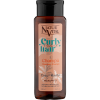FAQs, Healthy Living
Vitamin D and Omega-3s Linked to Immune Function
Vitamin D and Fish Oil Supplement May Reduce the Risk of Autoimmune Disease
A randomized, placebo-controlled study of 25,000 older adults found those who took vitamin D, or vitamin D and omega-3 fatty acids, had a significantly lower rate of autoimmune diseases such as rheumatoid arthritis and psoriasis compared with people who took a placebo. The study was part of the larger, nationwide VITAL trial, and the findings were published January 26 in the BMJ.
“It is exciting to have these new and positive results for nontoxic vitamins and supplements preventing potentially highly morbid diseases,” said the study’s senior author, Karen Costenbader, MD, MPH, a professor at Harvard Medical School and the director of the lupus program at Brigham and Women’s Hospital, both in Boston, in a news release.
“This is the first direct evidence we have that daily supplementation may reduce autoimmune disease incidence, and what looks like a more pronounced effect after two years of supplementation for vitamin D,” said Dr. Costenbader.
Vitamin D and Omega-3s Linked to Immune Function
Experts do not know how autoimmune diseases occur; they are not contagious. A hereditary link is present in many autoimmune conditions, and it may be that a virus or an environmental factor triggers the disease if a person already has the genes for it, per the NIEHS.
There is some evidence that certain autoimmune diseases are related to vitamin D levels, and some autoimmune conditions, such as MS, are more common in northern latitudes where vitamin D levels are, on average, lower because of low sun exposure, according to the National Multiple Sclerosis Society.
Several clinical trials, including a meta-analysis published in the Journal of Clinical Rheumatology, have found that omega-3 fatty acids taken in the form of fish oil supplements may improve the symptoms of some autoimmune diseases.
Our work demonstrates a mechanism by which vitamin D reduces inflammation caused by T cells. These are important cells of the immune system and implicated as part of the immune response to the infection causing COVID-19. Further research, especially clinical trials, and testing in patients, are necessary before this can be adopted as a treatment option.” Kazemian said. “We do not recommend the use of normal vitamin D off the shelf at the pharmacy. No one should be taking more than the recommended doses of vitamin D in an attempt to prevent or combat COVID infections.”
Previous studies have shown vitamin D’s ability to reduce the inflammation caused by T cells — inflamed cells in the lung characteristic of the most severe and dangerous cases of COVID-19. But as important as understanding that a drug works is understanding the how and the why. This is both to maximize benefit and minimize harm (such as preventing people from eating livestock dewormer or injecting household cleaners into their veins) as well as to pave the way for future treatments.






















Recent Comments